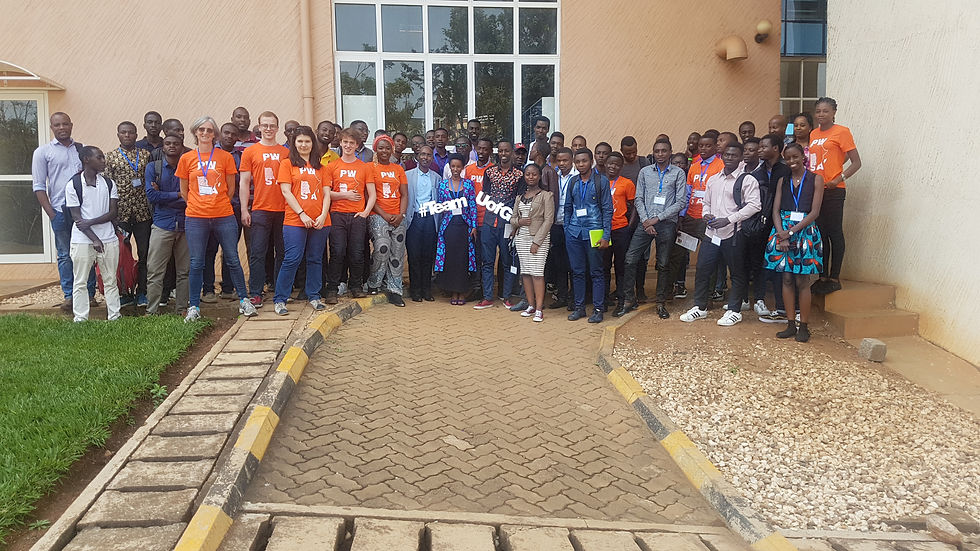A report on PWSAfrica 2019
- PWSAfrica

- Sep 30, 2019
- 3 min read
Updated: Jan 20, 2020
Author : Alex Pancheva
After running a very successful workshop at the University of Ibadan, Nigeria in 2018, this year PWSA went to the University of Rwanda, Kigali to train undergraduates, postgraduates, and staff members across the College of Science and Technology.
The PWSA2019 team included Alex, Benjamin, Fionnuala, Sofiat and Tom, along with two of the remarkable students who took part in PWSA2018 in Nigeria: Ifeoma and Paul, both affiliated to the University of Ibadan. Our hope is that participating as tutors in PWSA2019 will boost their confidence to start organising workshops themselves, and help scientists in their home institution and beyond learn Python and develop programming skills.
The workshop took place from 19 to 30 August 2019. Over the course of the training, we introduced the participants to a range of concepts, from basic programming constructs to more advanced techniques. While some of our participants had no experience with programming, others were comfortable with the basics having programmed in Java and/or C++ before. As such, this year we split the students into two groups based on their experience. Since we had the facilities, we were able to run the workshops simultaneously in the two very well equipped labs. Each day would start with the tutors introducing concepts to the participants and working through an example together. Then everyone would have the chance to spend some time working on problems to practice the concepts they have been taught, with support from the tutors. In the afternoon, there was a short taught session addressing common misconceptions, and participants would volunteer to explain problems on the board. Our teaching style was well-received, and everyone appreciated the hands-on approach.
During the second week of the workshop, we had some time to cover some more exciting topics such as using Python for data analysis, programming BBC micro:bits, and getting used to object-oriented programming in Python. At the end, the participants worked together on two projects: one was to build an interpreter, and the other was data science oriented. On the last day, everyone delivered great presentations and demoed their progress with the group project.
It was incredibly inspiring to see the participants improve and gain confidence over the two weeks: they were working together effectively, explaining things to each other, syntax errors stopped being intimidating, and they were tackling errors on their own. Some of our participants juggled workshop attendance with work and family commitments. We had a participant who travelled from Kenya for 25 hours by road to attend the workshop in Rwanda. It was this dedication to learning, this drive to improve, that made our experience so incredibly special and worthwhile. Our programming workshop was so well received that the University of Rwanda will be including Python programming as part of their curriculum.
We would like to thank the School of Computing Science, the University of Glasgow Chancellor’s Fund and the Global Challenges Research Fund for the funding and support! To Prof. Phillip Cotton (Vice Chancellor), Dr. Ignace Gatare (Principal of the College of Science and Technology) and Dr. Richard Musabe (Dean of the School of ICT), thank you for finding the time to tell us more about the University of Rwanda and upcoming changes, for supporting us and for attending the prize-giving ceremony at the end of the workshop. We would also like to thank Joseph Kaberuka for making sure our time in Kigali ran smoothly. To the IT staff of the University of Rwanda, thank you so much for providing us with support and for showing us around the lab on a Saturday! Finally, last but not least, a thank you to all the remarkable individuals we had the honour to teach. Thank you for making us part of your journey; we look forward to seeing where your programming skills will take you!








Comments